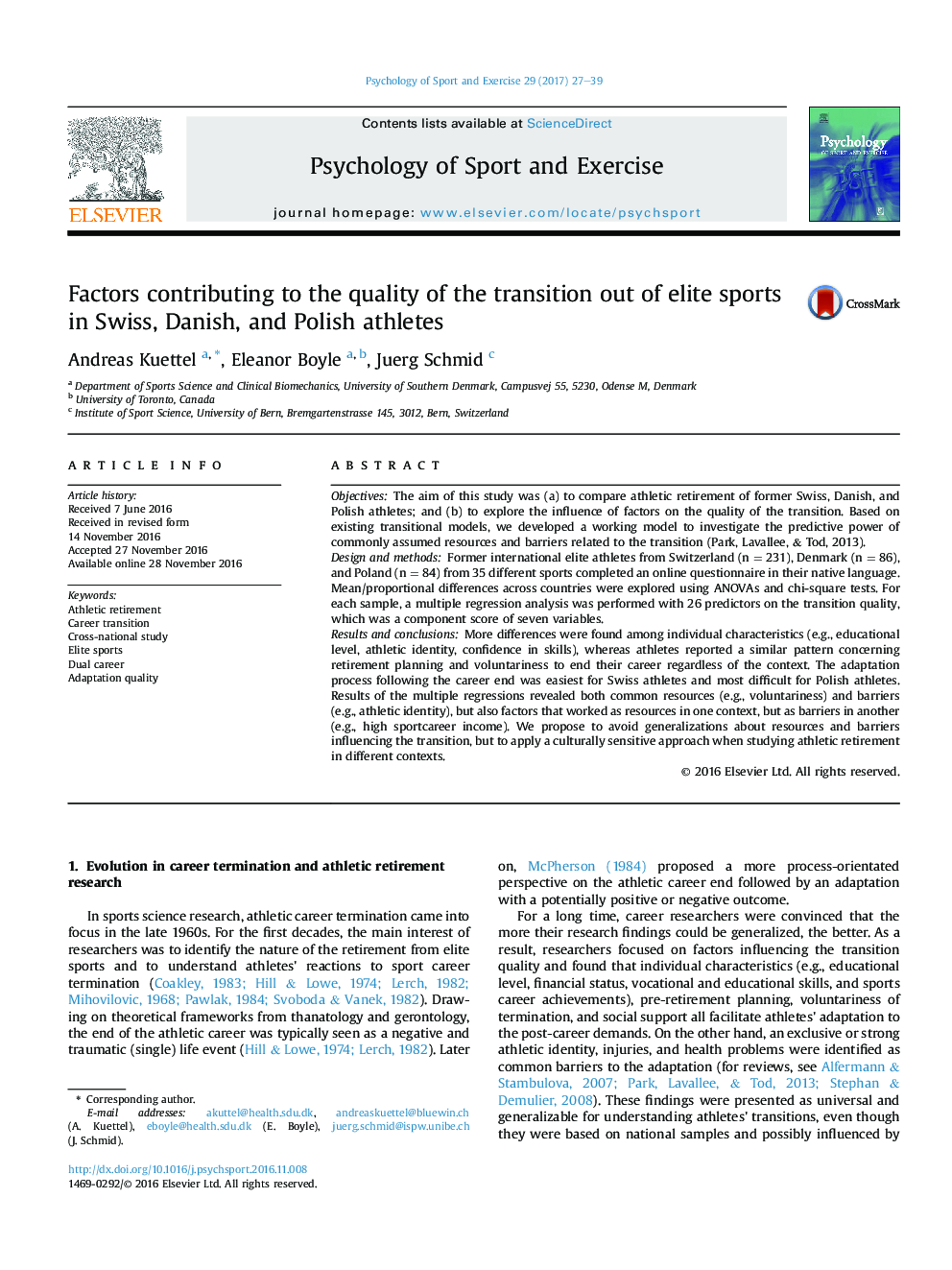| کد مقاله | کد نشریه | سال انتشار | مقاله انگلیسی | نسخه تمام متن |
|---|---|---|---|---|
| 5036537 | 1472098 | 2017 | 13 صفحه PDF | دانلود رایگان |
- We compared athletic retirement of former Swiss, Danish and Polish athletes.
- We developed a working model to study the transition quality out of elite sports.
- Transition quality was lowest for Polish and highest for Swiss athletes.
- Positive perception of career end is a main resource for a successful transition.
- Several factors that contribute to the transition quality are context specific.
ObjectivesThe aim of this study was (a) to compare athletic retirement of former Swiss, Danish, and Polish athletes; and (b) to explore the influence of factors on the quality of the transition. Based on existing transitional models, we developed a working model to investigate the predictive power of commonly assumed resources and barriers related to the transition (Park, Lavallee, & Tod, 2013).Design and methodsFormer international elite athletes from Switzerland (n = 231), Denmark (n = 86), and Poland (n = 84) from 35 different sports completed an online questionnaire in their native language. Mean/proportional differences across countries were explored using ANOVAs and chi-square tests. For each sample, a multiple regression analysis was performed with 26 predictors on the transition quality, which was a component score of seven variables.Results and conclusionsMore differences were found among individual characteristics (e.g., educational level, athletic identity, confidence in skills), whereas athletes reported a similar pattern concerning retirement planning and voluntariness to end their career regardless of the context. The adaptation process following the career end was easiest for Swiss athletes and most difficult for Polish athletes. Results of the multiple regressions revealed both common resources (e.g., voluntariness) and barriers (e.g., athletic identity), but also factors that worked as resources in one context, but as barriers in another (e.g., high sportcareer income). We propose to avoid generalizations about resources and barriers influencing the transition, but to apply a culturally sensitive approach when studying athletic retirement in different contexts.
Journal: Psychology of Sport and Exercise - Volume 29, March 2017, Pages 27-39
